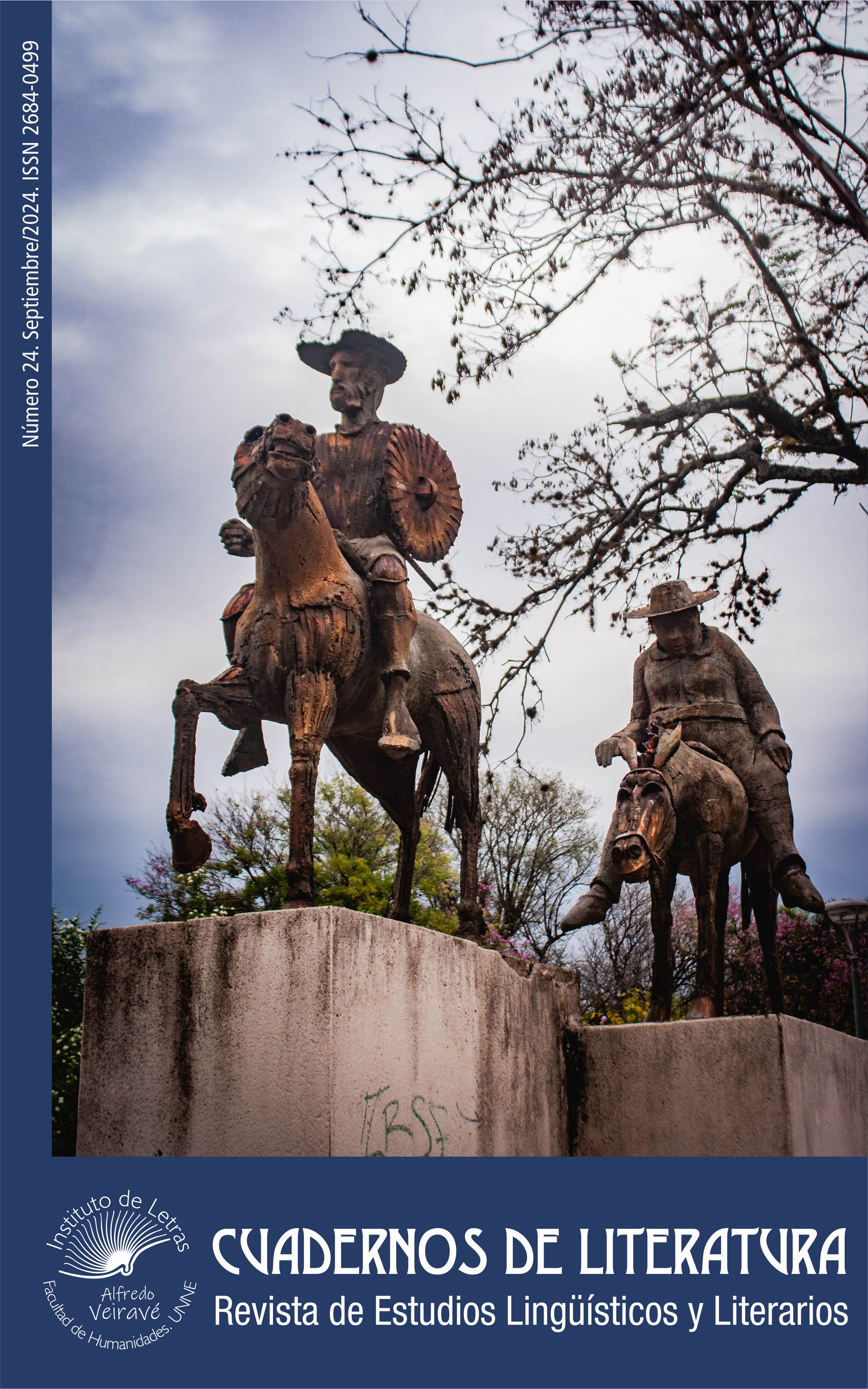Martyrdom as a commemorative act in St Catherine of Alexandria and St Eustace (MSS. h-I-13)
DOI:
https://doi.org/10.30972/clt.247804Keywords:
death, time, memory, testimonyAbstract
The death of the Christian martyr allows us to delve deeper into medieval time and its conception, based on both its linear and cyclical character. The two passions that make up MS. h-I-13, that of Saint Catherine of Alexandria and Saint Eustace, are inserted in the broader codicological context of hagiographic legends and adventurous stories that show the progression of narrative genres and compositional dynamics towards a secularization that is in any case exemplary. Their place in the manuscript, one after the other, refers to the configuration of a holiness focused on the imitation of Christ and his suffering on the cross, as well as to the distinction of the particularly female body as a commemorative record of torture and Christian death and witness, in line with the new horizons of hagiographic studies, which are very productive and little explored in the field of medieval Spanish literature.
References
Bloch, Marc. (1986). La sociedad feudal. Madrid, Akal.
Easton, Martha. (2002). Pain, torture and death in the Huntington Library Legenda aurea. En Riches, Samantha J.E. y Salih, Sarah (eds.), Gender and Holiness: Men, Women and Saints in Late Medieval Europe (pp. 49-64). London, Routledge.
Geary, Patrick G. (1994). Living with the Dead in the Middle Ages. Ithaca and London, Cornell University Press. DOI: https://doi.org/10.7591/9781501721632
González Ochoa, César. (1992). Concepción medieval del tiempo. Discurso, 13, 85-106.
Guriévich, Arón. (1990). Las categorías de la cultura medieval. Madrid, Taurus.
Jenkins, Jacqueline y Lewis, Katherine J. (eds.). (2003). St Katherine of Alexandria. Texts and Contexts in Western Medieval Europe. Turnhout, Brepols. DOI: https://doi.org/10.1484/M.MWTC-EB.6.09070802050003050102090007
Le Goff, Jacques. (2022). En busca del tiempo sagrado. Santiago de la Vorágine y la Leyenda dorada. Madrid, Akal.
Maier, John R. y Spaccarelli, Thomas D. (1982). MS. Escurialense h-I-13: Approaches to a Medieval Anthology. La Corónica, 11, 18-34.
Oexle, Otto Gerhard. (1995). Memoria als Kultur. Göttingen, Vandenhoeck & Ruprecht.
Ortega Cervignón, José Ignacio. (1999). La medida del tiempo en la Edad Media. El ejemplo de las crónicas cristianas. Medievalismo, 9, 9-39.
Rose, Els. (2009). Ritual Memory. The Apocryphal Acts and Liturgical Commemoration in the Early Medieval West (c. 500 - 1215). Leiden, Brill. DOI: https://doi.org/10.1163/ej.9789004171718.i-336
Zubillaga, Carina. (2008). Antología castellana de relatos medievales (Ms. Esc. h-I-13). Buenos Aires, Secrit.
Zubillaga, Carina. (2023a). El libro como paradigma de lectura unitaria de las historias del Ms. Esc. h-I-13. Calamus, 7, 69-81.
Zubillaga, Carina. (2023b). Tortura del cuerpo e identidad comunitaria cristiana en el martirio de santa Catalina de Alejandría. Bulletin of Hispanic Studies, 100, 275-287. DOI: https://doi.org/10.3828/bhs.2023.19
Downloads
Published
How to Cite
Issue
Section
License

This work is licensed under a Creative Commons Attribution 4.0 International License.
El envío de trabajos a Cuadernos de Literatura. Revista de Estudios Lingüísticos y Literarios implica una declaración de originalidad de la producción y la cesión de derechos de publicidad. Los autores retienen, no obstante, los derechos de propiedad intelectual y responsabilidad ética así como la posibilidad de difundir sus producciones por los medios que consideren. La cesión de derechos implica también la autorización por parte de los autores para que el trabajo sea depositado en el repositorio institucional y/o difundido a través de las bases de datos que el editor considere adecuadas para su indización, con miras a incrementar la visibilidad de la publicación y de sus autores.








52.jpg)









